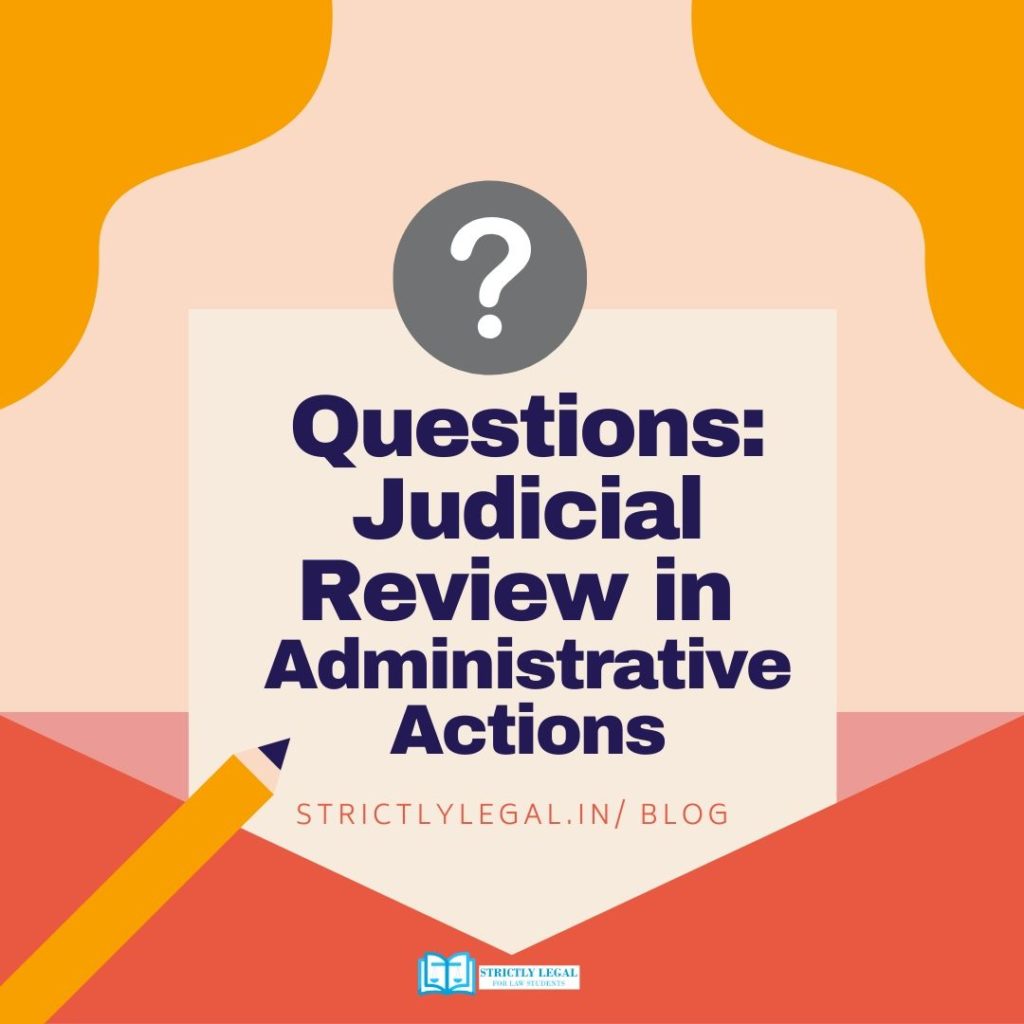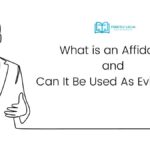Here are a few questions try solving them after you are done studying the chapter Basics of Judicial Review and various Writs under the Indian Constitution. The questions include topics such as Habeus Corpus, Mandamus, Certiorari.
Its time for a test?
Table of Contents
Question 1A
A person has been illegally detained and the superior court has now called upon the person by whom the prisoner is alleged to be kept in confinement to bring such person before the court to let the Court know on what ground the prisoner has been confined? What is the nature of Writ in such a situation? (5 marks)
Answer 1A
There are a hundred ways by which a prisoner can break free from the prison; digging tunnels, breaking locks, bribing the jailor and etc. But none that matches the power of Habeas Corpus. One piece of letter to the court and you’re out.
The nature of Writ in question is the habeas corpus. This writ is usually presented before the Supreme Court or the High Court under articles 32 and 226 respectively in circumstances where a person has been detained illegally or extrajudicially.
Habeus Corpus, the writ, was originally developed in the English system of common law and was mentioned in the Magna Carta, the first-ever document to have written the rights of individuals in a society.
Habeus Corpus in Latin means to ‘bring the body’. By means of this writ, the court may order that the body (read person) detained to be brought before the court, and the reasons for his detention be stated. If the Court finds his detention not explanatory according to the law to which he is subject, the person detained is set free.
Question 1B
A’s fundamental right has been infringed and he has filed a writ petition in the court of law but it is now being said that his petition would not be entertained during the times of emergency and hence his fundamental right was also said to be suspended.
Are such provisions in existence? Mention the important case in relation to the above-stated matter. (5 marks)
Answer 1B
Fundamental Rights are the rights under the constitution that are guaranteed to every citizen of the nation irrespective of their standing in the society. These rights are not only expressely engraved in part III of the Constitution but can be enforced under artcile 32 and 226 at the Supreme Court and High Courts respectively.
Any law made in contravention to these rights are declared void and breach of these laws are the highest sins in constitutional sense.
However, while an emergency is proclaimed by the president under article 352, 356, and 360, the state can by order suspend such rights for the time being. Such an order may be placed before the parliament for approval as soon as possible for it to take effect. It must be noted though that the fundamental rights under article 20 and 21 that is right to personal life and liberty cannot be suspended at any time, not even during the emergency.
Justice Hans Raj Khanna in his lone dissenting vote among other 4 other judges in a highly publicized ADM Jabalpur vs. Shiv Kant Shukla case stated that Rights such as life and liberty predate the constitution itself and these rights cannot be subjugated to any executive decree even during the period of national emergency for these are inalienable to one’s life and dignified existence.
Question 2A
In a case between A and B, B who was a gazetted officer, had no power to revoke a license, yet he passed an order revoking the license. This order was without jurisdiction and as such ultra vires.
Which writ would be applied by the Superior Court if A files a writ petition before it? (5 marks)
Answer 2A
The writ of ‘Certiorari’ may be filed by A in the above circumstance.
Certiorari is a type of writ which is usually filled when a subordinate court or a public authority is found to have acted:
- Without Jurisdiction or by assuming jurisdiction where it was none.
- In excess of Jurisdiction by over stepping or crossing its limits.
- Proceeds to act under a law which is itself Ultra Vires
- In contravention of Fundamental rights under part III of the Constitution.
In the above circumstance, A has acted in excess of the powers granted to it and therefore the courts have the power to intervene and quash such an order passed.
Question 2B
In a certain locality, it is seen that the municipality is not carrying its public duty of environmental cleanliness properly, due to which the local residents are facing problems. The High Court now issues directions to the municipality to perform its duties of providing a proper system for the flow of filth and removal of rubbish from that locality.
Which writ has been issued by the High Court? Elaborate your answer. (5 marks)
Answer 2B
The writ of Mandamus has been issued by the high court after relief was filed under article 226 of the Constitution of India.
Mandamus is a command issued by a court to an authority directing it to perform a public duty imposed upon in by law when the authority vesting with such powers refuses to exercise it.
Mandamus literally means, “We Command”. The directing authority i.e the Supreme Court under article 32 and the High Courts under article 226 is empowered to issue the writ and order the subordinate court or public authority to perform the functions that law has entrusted it with.
However, it must be noted that the writ of Mandamus must not be issued when the government authority has no duty by law or it has no obligations to perform such a task. The writ of Mandamus cannot compel a public or government body to perform tasks that it is not obligated to.
Do you find mistakes or better answers? Let me know in the comments. I’d be happy to update them up here.

Passionate about using the law to make a difference in people’s lives. An Advocate by profession.




